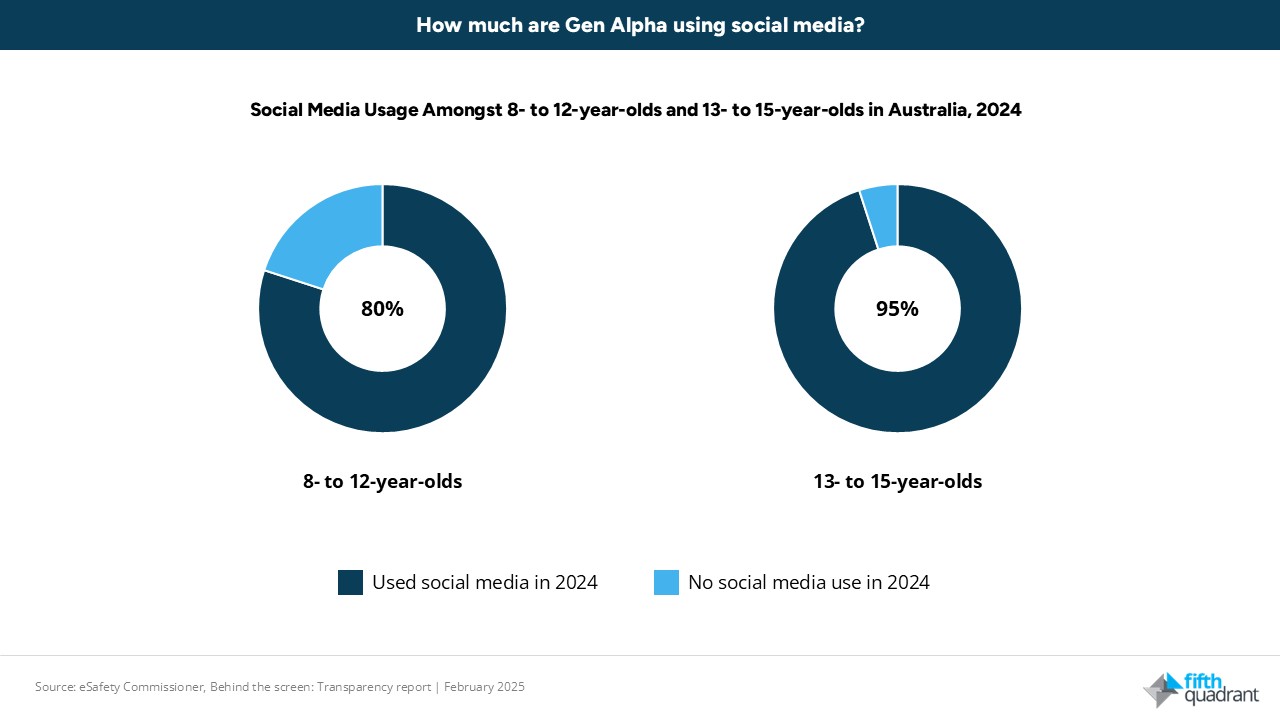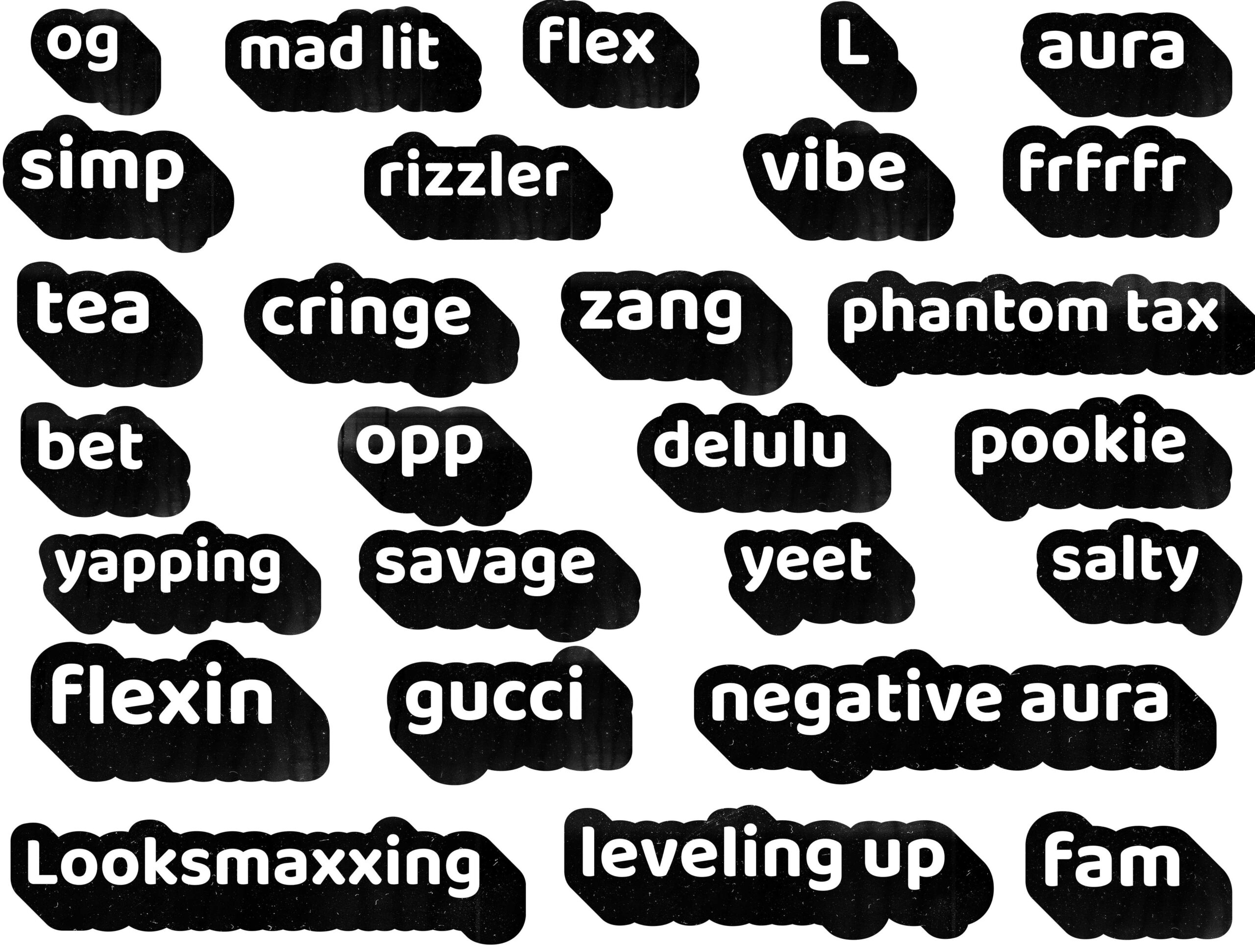Author: Hannah Hewes | Posted On: 21 May 2025
Generation Alpha – kids born from 2010 onward, have never known a world without touchscreens, streaming platforms, or digital avatars. According to the eSafety Commissioner’s ‘Behind the screen’ report, a striking 80% of 8- to 12-year-olds used social media in 2024, with this rising to 95% of 13- to 15-year-olds. They’re the true digital natives, absorbing not only content but also culture and communication styles from online playgrounds like TikTok, Roblox, and YouTube.

This deep immersion in digital spaces has given rise to a unique form of communication – Gen Alpha Slang – an evolving dialect influenced by memes, games, and viral videos. This emerging TikTok language is more than just playful chatter; it’s shaping how they express identity, form social bonds, and engage with the world. Increasingly, it’s also redefining how brands, educators, and marketers need to connect with this generation and keep pace with youth trends.

What’s the vibe? Understanding gen alpha’s lingo
From memes to multiplayer games, Gen Alpha communicates in a style that’s punchy, playful, and sometimes bewildering to older generations. Their slang isn’t random; it’s deeply rooted in the digital ecosystems they inhabit. Here’s a peek into their everyday talk:
- Rizz: A shorthand way of saying someone has smooth charm or confidence. If you’ve “got rizz,” you’re pulling attention effortlessly.
- Gyatt: A reaction word – part excitement, part admiration, often shouted when something (or someone) makes an impact.
- Skibidi: Originating from a surreal meme series, this word has come to represent the wild, nonsensical energy of internet culture.
- Delulu: Playfully used to describe someone who’s out of touch with reality in an endearing or exaggerated way.
- Fanum Tax: A term from internet personalities, used when someone sneakily grabs a bite of your food. It’s funny, relatable, and oddly specific—perfectly on-brand for Gen Alpha humour.
These phrases go beyond surface-level jokes—they’re embedded in the way Gen Alpha socialises, expresses themselves, and builds group identity. If you’re not “in the loop,” you’re “giving NPC” (translation: sounding robotic or out of touch).
Why it matters for culture and for business
This isn’t just a youth fad. Gen Alpha’s linguistic creativity is already influencing mainstream media, marketing, and education. Their slang often signals broader cultural trends – like the rise of irony as a coping tool, or how gaming metaphors have replaced traditional analogies.
Take the term “rizz”, for instance – it moved so quickly from online slang to mainstream awareness that it was crowned Word of the Year by Oxford in 2023. That kind of cultural velocity has serious implications for brands and communicators. If you’re speaking last year’s language, you’re already two steps behind.
How fifth quadrant keeps up with the delulu (without being delulu)
At Fifth Quadrant, staying current means more than just keeping an eye on trending hashtags. We’re constantly adapting our research methodologies to reflect the speed and style of Gen Alpha communication.
Here’s how we do it:
- Immersive Insight Gathering
Through digital ethnography, we explore the spaces where Gen Alpha lives online, from their favourite creators to the latest trends on platforms like TikTok and Twitch. This helps us tap into their mindsets authentically. - Listening as It Happens
Real-time social listening tools let us track emerging slang, memes, and content styles as they gain traction, before they hit the mainstream radar. - Designing Research They’ll Actually Engage With
Static surveys? That’s not going to cut it. We use interactive tools, gamified questions, and visual storytelling to speak their language (sometimes literally) and get more meaningful responses.
By understanding their culture, we’re able to deliver insights that help brands meet Gen Alpha where they are – not where they used to be.
Gen alpha in the classroom and the boardroom
A perfect illustration of Gen Alpha’s impact comes from a recent viral video by YouTuber Arieh Smith (aka Xiaomanyc). In a speech to an American high school audience, he switched from formal English to full-blown Gen Alpha slang, delivering his message entirely in their dialect. It worked. The crowd was hooked, and the clip racked up nearly two million views in under two weeks.
This isn’t just about laughs, it’s a lesson in cross-generational communication. Whether you’re a teacher, marketer, or strategist, understanding how Gen Alpha speaks is a crucial first step toward genuine engagement.
Ready to decode what’s next?
At Fifth Quadrant, we don’t just track trends, we make them actionable.
Want to explore what Gen Alpha (or any generation) is really thinking, saying, and doing? Speak to us about how our consumer research will help you discover how your brand can connect, resonate, and stay relevant in this fast-changing landscape.
Reach out if you’re keen to learn more.
Posted in Uncategorized, Consumer & Retail

